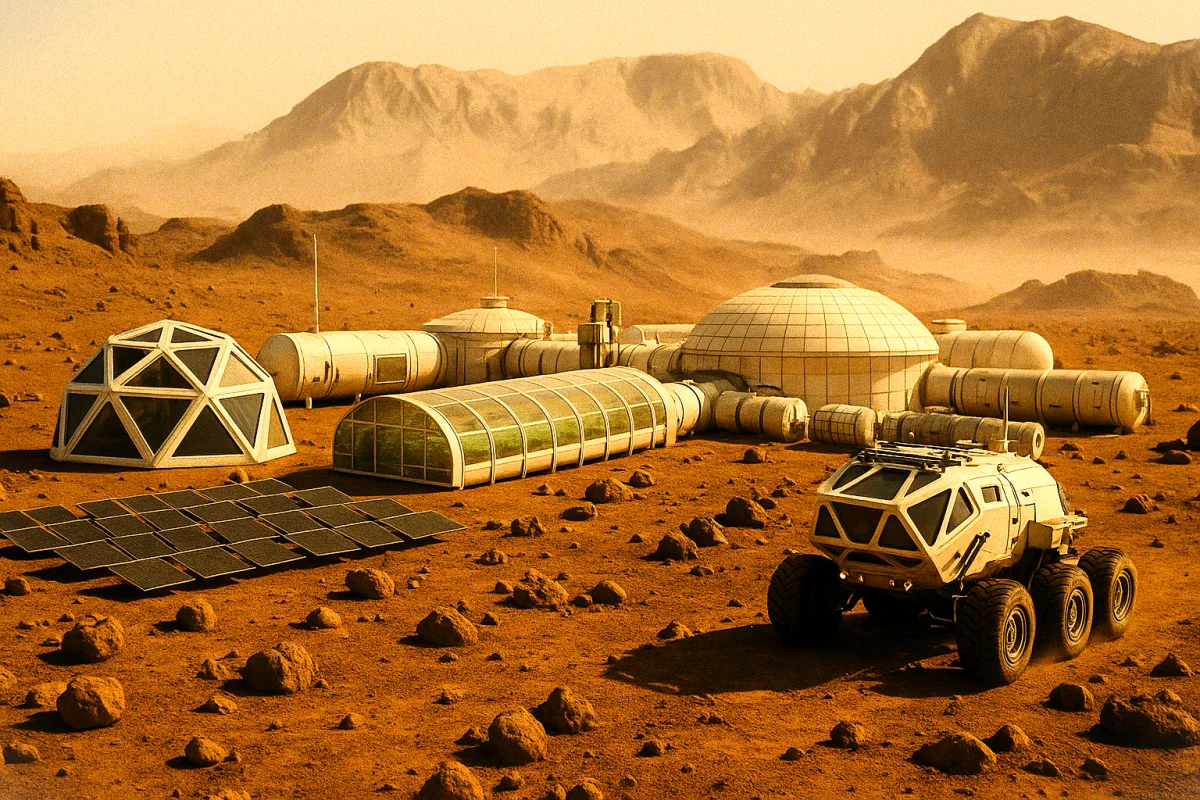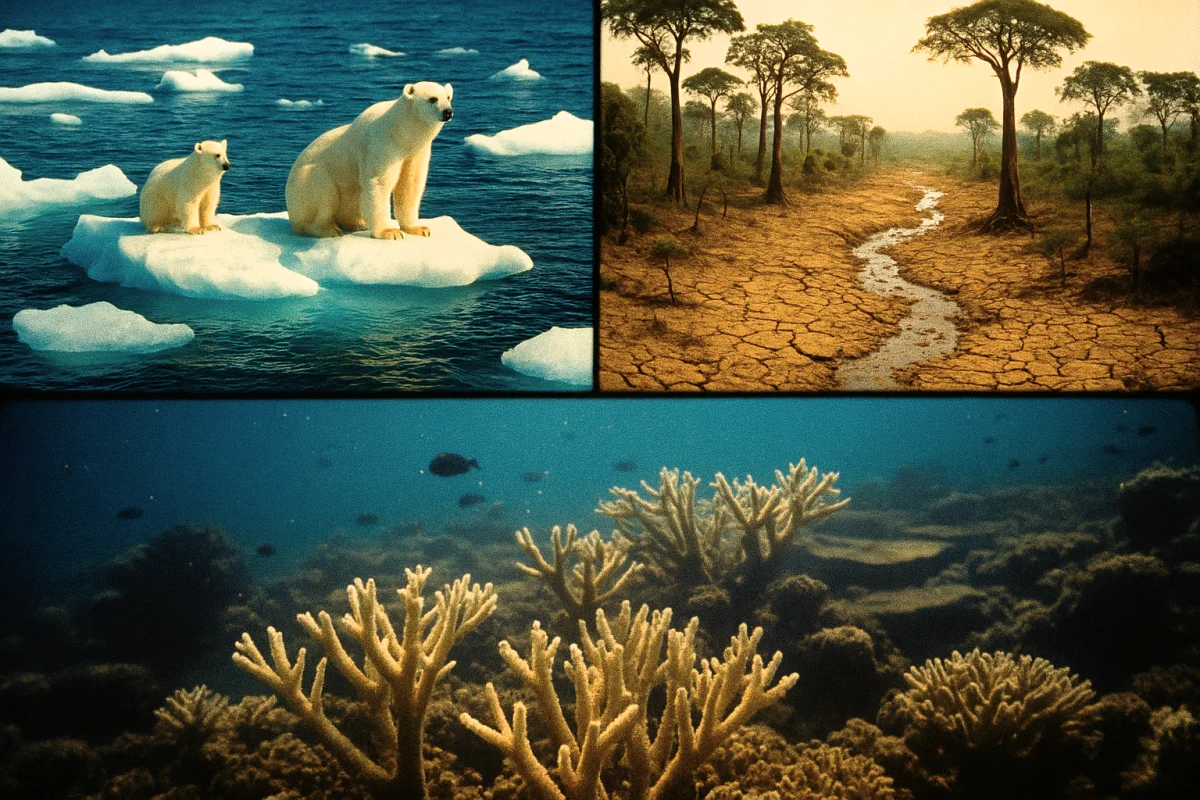Mars Colonies — How Could Humans Live on the Red Planet?
Mars, often called the “Red Planet,” has long fascinated both scientists and dreamers. Today, as space technology rapidly advances, one question becomes ever more relevant: how could humans live on Mars? The idea of colonization is no longer just science fiction — it is steadily moving into the realm of real research and engineering plans.

Why Mars?
Mars is the most “Earth-like” planet in our solar system. It has a day-night cycle almost identical to Earth’s, polar ice caps, and geological features that resemble our planet’s history. While its atmosphere is thin and composed mostly of carbon dioxide, Mars is still considered the best candidate for future Mars colonies.
Essential Conditions for Life
Establishing human settlements on Mars requires solving several major challenges:
- Air — The Martian atmosphere has almost no oxygen, so it must be generated from local resources (e.g., the MOXIE experiment).
- Water — Polar ice and underground salty water could provide vital sources of drinking water and hydrogen.
- Energy — Solar panels and nuclear generators will likely power the colonies.
- Food — Closed-loop ecosystems will be needed, where plants grow in specialized greenhouses.
Habitats and Architecture
Scientists and architects are already designing housing modules for Mars. Some concepts include:
- Inflatable domes — lightweight and easy to transport;
- Lava tubes — natural underground shelters protecting colonies from radiation;
- 3D-printed buildings — constructed using Martian regolith as raw material.
These approaches aim to minimize the need to transport resources from Earth.
Life and Daily Routine on Mars
Living on Mars would be a completely new experience. Colonists would reside in enclosed habitats, carefully monitor resources, and work closely as a team. Communication with Earth would face a delay of several minutes, requiring a high level of independence. Daily life would revolve around scientific research, engineering, and managing ecosystems.
Future Perspectives
Mars colonies could represent humanity’s first step toward becoming a spacefaring civilization. They could open doors to a new economy, groundbreaking scientific discoveries, and even the potential discovery of alien life. The main challenge remains: can we sustain life and make Mars a true second home?
Conclusion
Colonizing Mars is no longer just a fantasy — it is part of our shared future. If we can overcome the challenges, Mars could become humanity’s “second planet,” where a new chapter of history will be written. This leap would mark not only technological progress but also the long-term survival of our civilization.
What do you think — are Mars colonies humanity’s greatest goal, or just a bold scientific experiment?
✍ Article Author
- Registered: 26 July 2025, 15:34




 Silent Cat 🐾
Silent Cat 🐾